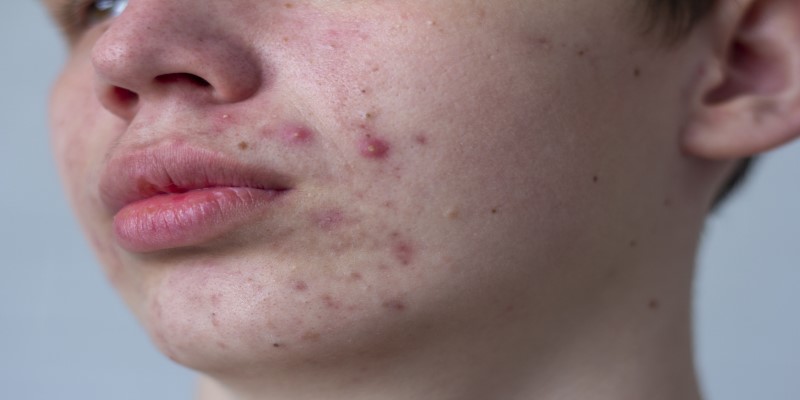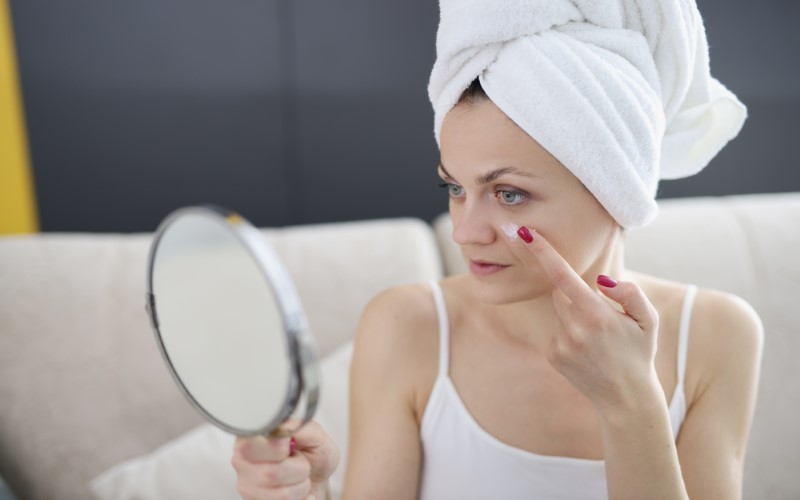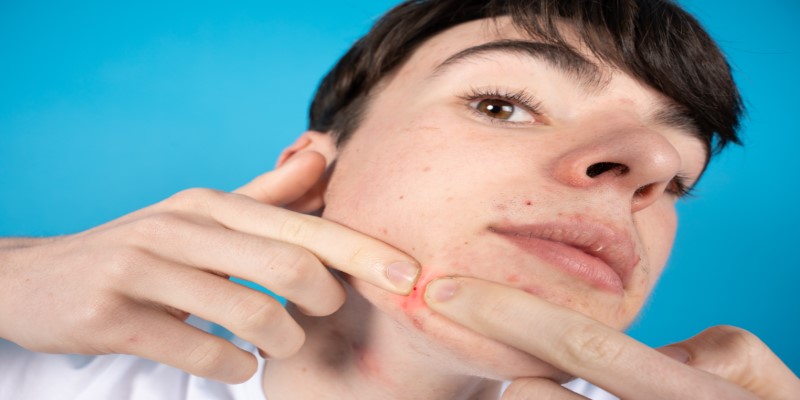
Managing cystic acne can be more than just a skin-deep challenge. If you've ever wondered about the painful nodules, inflammation, and potential scarring associated with this severe form of acne, you're not alone.
In this guide, we'll delve into what makes cystic acne distinct, its impact on your skin, and most importantly, practical do's and don'ts for managing and preventing this often stubborn condition. Let's demystify the world of cystic acne and pave the way for a clearer, more confident you.
What to Know About Cystic Acne?
Cystic acne is a severe and often painful form beyond typical surface blemishes. Characterized by large, deep, and inflamed pimples, cystic acne occurs when pores become clogged with excess oil, dead skin cells, and bacteria, forming cysts beneath the skin. These cysts can be tender to the touch and may cause significant discomfort.
Unlike milder forms of acne, cystic acne can result in long-lasting scars and hyperpigmentation. The appearance of cystic acne is marked by red, swollen nodules or cysts that may develop into pus-filled lesions. Due to its depth within the skin, traditional topical treatments may not be as effective, necessitating a more comprehensive approach for managing and preventing scarring.
Do’s for Managing Cystic Acne:
Let's move on to the do's for managing the cystic acne breakout wisely!
Cultivate Gentle Cleansing Habits:
One of the fundamental steps in managing cystic acne is adopting a gentle cleansing routine. Use a mild, non-comedogenic cleanser to cleanse your face twice a day. This helps in effectively removing excess oil and bacteria without irritating them. By embracing this practice, you create a foundation for a healthier, clearer complexion.
Prioritize Hydration:
Hydration plays a crucial role in combating cystic acne. It's essential to keep your skin well-hydrated using a non-greasy moisturizer. This preventive measure guards against excessive dryness, a common concern for acne patients. By prioritizing hydration, you contribute to your skin's overall balance and resilience.
Effective Spot Treatment:
When dealing with active breakouts, targeted spot treatment becomes pivotal. Incorporate treatments with ingredients like benzoyl peroxide or salicylic acid into your skincare routine. These ingredients are known for their ability to address acne-related issues directly. By incorporating spot treatments, you take proactive steps to manage and minimize the impact of cystic acne on your skin.
Embrace Dietary Changes:
The link between diet and acne is undeniable; conscious dietary changes can positively influence cystic acne. Opt for a balanced diet, reducing the intake of processed foods. Instead, focus on incorporating more fruits and vegetables into your meals. This dietary shift gives your body essential nutrients, contributing to a healthier complexion.
Integrate Regular Exercise:
Physical activity is not only beneficial for your overall well-being but also plays a role in promoting healthy skin. Engage in regular exercise to enhance blood circulation, which, in turn, supports the skin's natural renewal process. By making regular exercise a part of your routine, you contribute to the holistic approach needed for managing cystic acne effectively.

Don’ts to Avoid Aggravating Cystic Acne:
Besides the do’s, there are several don’ts that you should also take into account. These include:
Resist the Urge to Pick or Squeeze:
One of the cardinal rules in managing cystic acne is to resist the urge to pick at or squeeze the blemishes. Such activities can worsen inflammation, potentially leading to more severe breakouts and scarring. Exercising restraint and avoiding this common temptation protects your skin from unnecessary damage and aids in the healing process.
Steer Clear of Harsh Skincare Products:
To prevent aggravating cystic acne, avoiding skincare products with harsh ingredients is crucial. Products containing alcohol or strong fragrances can irritate sensitive skin, exacerbating acne-related issues. Opt for gentle, non-irritating formulations to nurture your skin without causing additional harm. Making informed choices in your skincare regimen contributes to a calmer and more balanced complexion.
Consider Reducing Dairy Intake:
In the pursuit of clearer skin, dietary choices play a significant role. Some studies suggest a potential link between dairy consumption and acne. As such, it might be prudent to consider reducing your intake of dairy products. While individual responses vary, this adjustment in diet could positively impact your skin by minimizing factors that may contribute to cystic acne.
Keep Your Hands Away from Your Face:
Maintaining a hands-off approach to your face is a simple yet effective strategy for preventing the transfer of bacteria and dirt. Touching your face, especially with unwashed hands, can introduce harmful elements that worsen acne. By consciously keeping your hands away from your face, you create a barrier against potential contaminants, fostering a cleaner and healthier skin environment.
Balance Sun Exposure:
While some sun exposure can have benefits, excessive sun exposure can be detrimental for those dealing with cystic acne. Overexposure to the sun can worsen acne and lead to skin damage. It's essential to strike a balance – enjoy moderate sun exposure while taking precautions like sunscreen. By being mindful of sun exposure, you safeguard your skin from potential exacerbation of cystic acne symptoms.

Conclusion
Managing cystic acne requires a balanced approach that combines practical do's and don'ts to promote healthier skin. By cultivating gentle cleansing habits, prioritizing hydration, and incorporating effective spot treatments, you create a foundation for clearer, more resilient skin.
On the flip side, avoiding the urge to pick or squeeze blemishes, steering clear of harsh skincare products, and keeping hands away from the face are crucial don'ts that safeguard against aggravating cystic acne. Balancing sun exposure and considering dietary adjustments further support the journey to clearer skin.
By adopting these practical tips, you empower yourself to take charge of your skincare, promoting the alleviation of current breakouts and the prevention of future ones. Here's to a healthier, clearer complexion and the confidence that comes with it.



